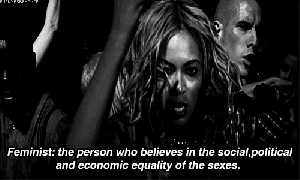As Pippa Middleton recently remarked, “What is it with this American booty culture? It seems to me to be a form of obsession.”

Who doesn’t love the booty?**
Whether we’re talking about Miley Cyrus’s twerking, Nicki Minaj’s “Anaconda,” Meghan Trainor’s “All About That Bass,” Jennifer Lopez and Iggy Azalea’s “Booty,” Kim Kardashian’s “break the internet” photos, Rihanna and Shakira’s “Can’t Remember to Forget You,” or even Taylor Swift crawling between the legs of her mostly black twerking dancers (whose faces we never see) in “Shake It Off,” the discourse of the “booty” is currently almost everywhere in mainstream American culture. One half expects to see mainstream television programs take up the issue in a bid for ratings. Next week on Modern Family: the token angsty teen girl is even more angsty than usual because her step-grandmother has a better butt than she does.

Image credit: DeviantArt user A-Little-Kitty
Vogue has declared, in fairly jejune fashion, that the booty obsession is just the fulfillment of discourses we weren’t ready for 13 years ago — we weren’t “ready for the jelly” in 2001 when Destiny’s Child came out as “Bootylicious,” but we are ready now that J.Lo and white rapper Iggy Azalea are asking us to “Throw up your hands if you love a big booty.” Nicki Minaj is the fulfillment of the promise of J.Lo’s green Versace dress.
Others, including Yomi Adegoke and Susana Morris (of Auburn University, and co-founder of the generally awesome Crunk Feminist Collective) have discussed the booty obsession as cultural appropriation of what has been a desirable body type within black American culture. This appropriation was made perhaps most clear when Miley Cyrus, who has been donning the trappings of black rachet culture for several years now, photoshopped Nicki Minaj’s “Anaconda” cover photo, literally whitening Minaj’s skin and replacing Minaj’s face with her own. (The racism in the Kim Kardashian photos is also strikingly baldfaced.) The racial appropriation within “booty culture” is more than troubling, particularly during a time when the most pervasive images of black people within mainstream culture are photos of men like Michael Brown and Eric Garner, or the young Cleveland boy with a toy gun who was shot seconds after police arrived on scene. What has come to be thought of as the “black body type” in our culture has become acceptable and celebrated in the mainstream, but this (and other) cultural mainstreaming has not affected the systemic racism that oppresses black Americans. Mainstream culture incorporates and makes equally-available the body type without truly incorporating or making equal the bodies themselves.
Also, the sudden pervasiveness of “booty culture” seems suspicious given how it has taken focus off of the previous, somewhat overlapping female pop star controversy: contemporary feminism. Regardless of whether we personally think Beyonce‘s, Taylor Swift‘s, Miley Cyrus’s, Pharell‘s, Rihanna’s, or Nicki Minaj‘s feminism is substantively advancing equality or just substantively cashing in on millennial desire for commodity activism, conversations were taking place. There were daily opportunities to discuss *feminisms* and break out of the post-feminist backlash discourse of “one man-hating sexually-repressed feminism only for women who are just angry that they can’t consume their way to pretty.” The everydayness of pop feminism, and yes, the trendiness, created space for these conversations to be framed as relevant and timely.
Over the summer, articles were calling 2014 the “year of pop feminism.” Now, it is the year of the booty. Yes, the booty obsession has emphasized “different body types.” But the focus remains on the body. For women, the body is an asset, a marketable commodity, but that also makes women, to some extent, an object, playing into the traditional “to-be-seen”-ness, the “desire to be desired” (to use Mulvey and Doane’s phrases).
Thus, Beyonce’s last album, which contains a voiceover with Chimamanda Ngozi Adichie explaining the definition of feminism, discursively becomes the album wherein she started a song with the lyric “Let me sit this ass on you.” The conversation returns to its cultural comfort zone — not how we could achieve gender equality so neither women NOR men are disciplined or punished into outmoded and damaging gender roles, but how women can empower themselves by, in bell hooks’ words, playing into “tropes of the existing, imperialist, white supremacist, patriarchal capitalist structure of female sexuality.”
** This post contains no photos of booty. The writer does not wish to participate in the continued objectification of other women by including gifs or images that turn those women into faceless body parts or mark out their bodies as exchangeable.
Lindsey Decker is a fifth-year Ph.D. candidate studying Film and Television in the Department of English. Her dissertation examines questions of transnational cinema in self-reflexive British horror films.

